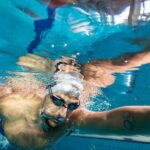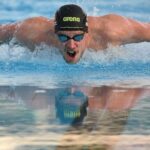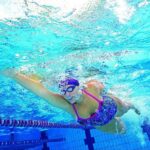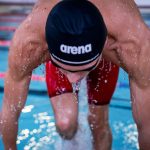Tips from Tom: what Shields recommends to be a better butterflyer
As Tom Shields made his way around Omaha during the week of the United States Olympic Trials, there were plenty of requests for autographs from the butterfly star. Adults, teenagers and young kids asked for Shields’ signature, knowing that the California product and ARENA ambassador is among the best in the world at his profession.
So, why not ask Shields for a bit of guidance and analysis on the stroke that defines his career.
Here are three areas of focus from Shields.
UNDERWATERS
When Shields was at Cal and dominating the collegiate ranks, a large part of his success was due to his superb underwater skills. With the additional turns of short-course action, Shields would bury the opposition off the walls. Even now, with fewer turns in the long-course pool, Shields benefits from his underwater skill. It’s an element of the stroke he cannot emphasize enough.
“At a young age, my advice is to take the least amount of strokes possible and work on those underwaters,” Shields said. “It’s an underwater man’s game and while young kids are waiting for their shoulder strength to develop, they can push the underwaters. Turns are so important. It’s something you can’t ever let go.”
TRANSITIONING
There was a time when Shields was solely a factor in the 100 butterfly, the longer four-lap distance a struggle for a sprint type. But Shields put in considerable work to make himself a two-event threat, the evidence found in the fact that Shields is on the Team USA in both fly disciplines. With his dual success, Shields must balance going up in distance, and coming down.
“Changing distances is not an easy transition to make,” Shields said. “I’ve paid for in the past going up from the 100 to the 200, so I think coming down is easier because you’re carrying easy speed. You do the best you can to balance the events and find the right stroke for each.”

THE MENTAL GAME
For all the physical attributes required to excel in the fly, especially the grueling nature of the 200 distance, Shields places a big emphasis on the mental aspect of the sport – preparation and internal focus being two of the main keys to success. Simply, Shields walks onto the deck knowing what he wants to achieve, and is not concerned with what the man next to him is going to do.
Yet, Shields is a perfectionist and always on the hunt to better himself. After he was done competing at Trials and had a pair of Olympic tickets in his pocket, he felt there was room for improvement for Rio, that his efforts in Omaha were not up to the level he expected.
“A big thing for me is needing to get to the point where I don’t think about my race all day,” he said. “I have to think about it once and then get to the race. I know I’ve done the work , so I just have to let it go. I need to be in the moment and go with what got me there.”
Written by:
John Lohn
U.S. correspondent for SwimVortex. Author of three books, including They Ruled the Pool. Media Specialist. Lucky Husband. Dad of 3 little girls. Loving life.







